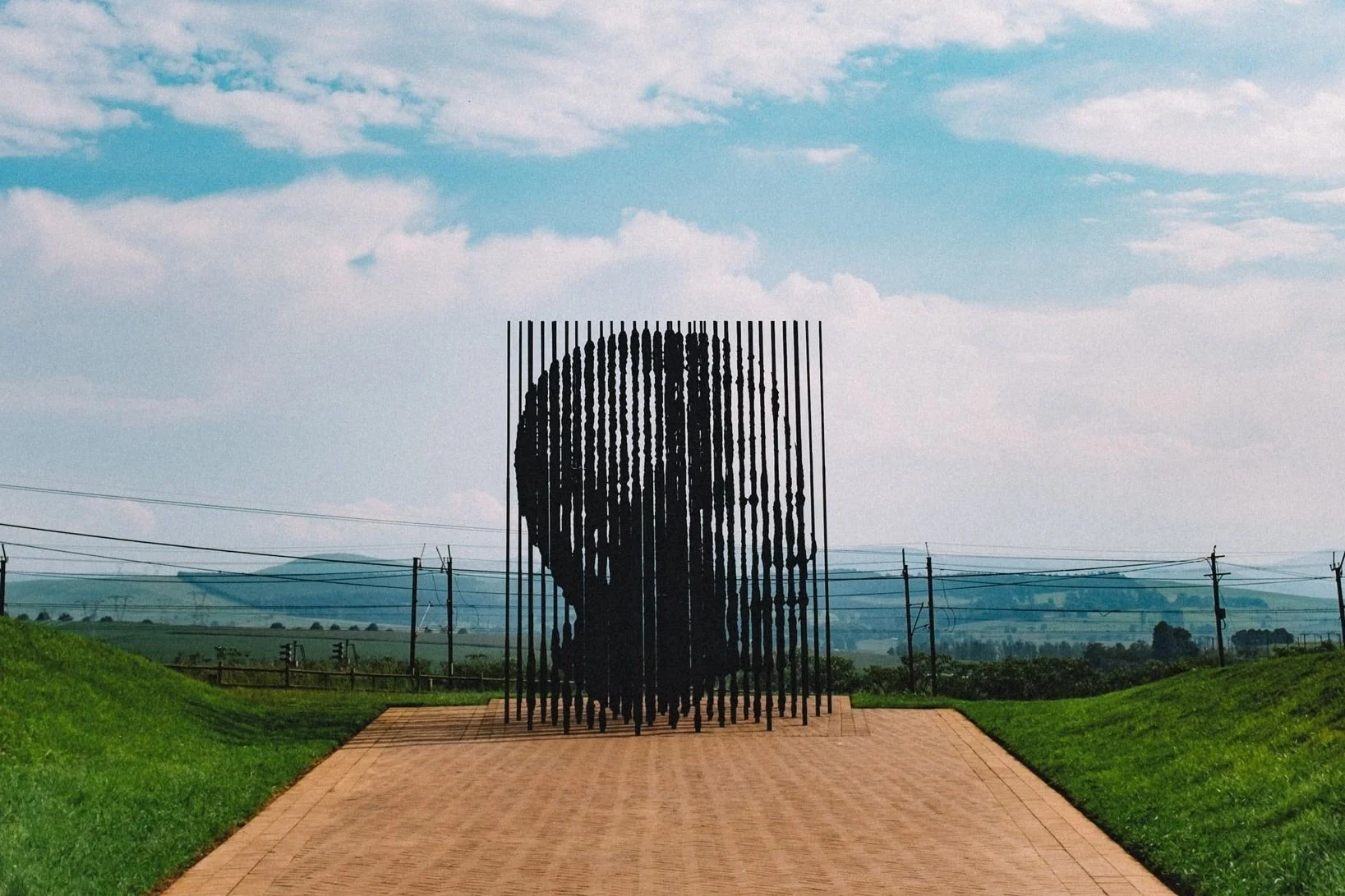On Saturday, June 13th 1964, Nelson Mandela and six of his co-convicted arrived on Robben Island and were driven to the maximum security prison in handcuffs and chains to begin a long prison sentence – his second – for crimes against the state. Treason was the official charge. The conditions were harsh and the hard labour brutal. That morning Mandela sensed the anguished despair of his comrades and so quietly counselled them on the importance of maintaining their dignity at all times.
He was determined, he would later write, “that we should put our stamp clearly, right from the first day we must fight [for our dignity] because that would determine how we were going to be treated …”
Conditions on Robben Island were brutal. It was only in 1978 – fourteen years later - that prisoners were allowed to stop doing hard labour. But by then, Mandela and the other prisoners had suffered permanent health damage – the searing heat and blinding light reflecting off the lime quarry, for example, permanently damaged their eyesight. The food was barely edible and was divvied up according to the racist policies of the prison governor. Weather conditions were extreme - blistering hot in summer and bitterly cold and constantly raining in winter. Many prisoners died where they’d dropped in the lime mines from extreme cold, or where they had been breaking stones. This list of privations and cruelties is long and incredibly shocking …
When Mandela’s mother, Nosekeni died in 1968, he was refused permission to bury her. The following year, his eldest son, Thembi, was killed in a car accident. Mandela’s plea to be at the graveside service was ignored. His wife Winnie was later detained by police and spent fourteen months in custody.
There are many, many other harrowing experiences that Nelson Mandela, a lawyer, recounts in his memoirs which became a landmark book, “The Long Walk”. All those long years in a brutal place of imprisonment would be more than enough to crush a man and destroy his dignity, turning him into an embittered, vengeful monster.
Not Mandella.
In February 1985, South African president, Pik Botha, offered Mandela a conditional release from prison. Mandela rejected the offer, releasing a statement through his daughter Zindzi stating, “What freedom am I being offered while the organisation of the people [ANC] remains banned? Only free men can negotiate. A prisoner cannot enter into contracts.”
Mandela would serve another 4 years in prison - 27 years in total – before the new South African president F. W. de Klerk unconditionally released him. Mandela and de Klerk then led efforts to negotiate an end to apartheid, which resulted in the 1994 multiracial general election in which Mandela led the ANC to victory and became president of South Africa.
In July of 1994, I happened to be in Indiana, U.S.A., on a Sunday at the largest African-American Church of Christ in the state. I and several other ministers were guests of the Senior Pastor of the “Light of the World Christian Church” in Indianapolis, Dr. T. Garrott-Benjamin, Jr. The worship of 3500 African-Americans was unbelievable. Over the luncheon that followed the pastor announced to us that he had a surprise in store for us that afternoon. We were to be special guests at the 84th Convention of the NAAACP (the North American Association for the Advancement of Coloured People). It was very rare, indeed, for white people to be guests at any NAAACP convention – and we sure got some interesting looks when we were seated at the front of the meeting!
A range of speakers came and went on stage. The keynote speaker was about to walk on and, up to this point, only a handful of people in the organisation knew who that was – including our gracious host, Tom Garrott-Benjamin Jnr. The most anyone knew was that a special guest was attending. The band struck up and within seconds Nelson Mandela walked onto the stage and went to the podium.
The crowd went absolutely ballistic!
I have never experienced anything like it. The cheering, hooting, foot-stamping, crying, clapping ovation last almost 15 minutes - pandemonium - before a smiling, visibly moved Mandela graciously motioned for calm. We Aussie pastors were absolutely stunned. It was surreal. The most incredible experience …
Mandela began to speak about his journey and where it had landed him. He shared many, many things about the years of imprisonment, deprivation and struggle. But one or two things, in particular, stick in my mind from that day. Mandela said, “hate is a luxury no one can afford; this world cannot afford it … hate distorts everything, reason, objectivity, any efforts towards reconciliation, the future ... Hate leads to such deep embitterment that you cannot hear God’s voice anymore, you can only hear yourself … embitterment destroys your dignity. The world cannot afford the cost of hate, it needs the grace of forgiveness which is the only path to reconciliation.” Mandela went on to share how his faith in God in the darkest moments of his incarceration sustained him and protected his dignity and sanity. That dignity and the sheer power of suffering-refined grace – which did not necessarily exclude forthrightness when needed – led to many crucial collaborations which paved the way to the ending of apartheid in South Africa, including with former president, F. W. de Klerk who became a deputy president under Mandela’s presidency. The two became friends
Embitterment leads to not being able to hear God anymore – only yourself. It grieves Holy Spirit.
Ephesians 4:31-32 (NRSV)
“Put away from you all bitterness and wrath and anger and wrangling and slander, together with all malice, 32 and be kind to one another, tenderhearted, forgiving one another, as God in Christ has forgiven you.”
Rest in peace, Madiba.
You are loved.
Ps Milton
Sources: “Prison Letters”, Nelson Mandela; “Mandela: the authorised portrait”; “The Long Walk”, Nelson Mandela; personal diary notes from 1994.

